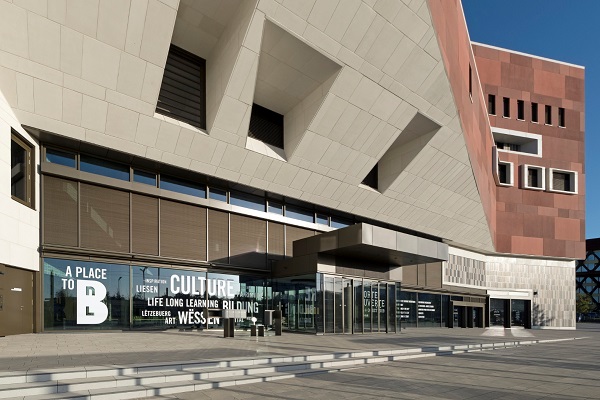 National Library of Luxembourg;
Credit: BnL
National Library of Luxembourg;
Credit: BnL
On Wednesday 6 May 2020, Luxembourg's government council approved the draft regulation allowing for the reopening of cultural institutions (following their closure resulting from the COVID-19 pandemic) from Monday 11 May 2020.
From next Monday, the following cultural institutions will be authorised to open their doors to individual visitors, subject to strict compliance with sanitary conditions:
- state cultural institutes which manage documentary heritage at the national level, namely the National Archives, the National Library (BnL), the Centre national de littérature (CNL) and the Centre national de l'audiovisuel (CNA);
- archives and libraries;
- museums, exhibition centres and places of interpretation.
Since their closure to the public, libraries and documentation centres have seen an increasing interest in their digital collections and alternative initiatives launched in the context of confinement. With the gradual resumption of teaching, and in the interest of continuing research activities, access to the resources of the aforementioned cultural institutes is considered increasingly urgent. Initially, these infrastructures will therefore begin to accommodate a reduced number of visitors, in strict compliance with sanitary measures. Protective measures will be implemented for visitors and staff, such as reservations and online consultation requests, a limited and reserved access to reading rooms, controlled regulation of visitor traffic, provision of hand sanitiser and increased cleaning intervals.
Museums and exhibition spaces in turn have also increased their digital offer in the context of confinement, which has enabled them to maintain contact with the public, and even to attract new audiences. Thus, due to the high degree of control that museums can offer over the flow of visitors, access to these institutions will be allowed for individual visitors and families. By virtue of the health measures intended to counter the spread of COVID-19, all activities involving the gathering of people (guided tours, educational activities, seminars, etc.) remain prohibited. In compliance with the recommended sanitary conditions, the opening of the various exhibitions will take place within the framework of additional protection measures, such as the restriction of the number of visitors, a controlled circulation of visitors inside the infrastructures and the provision of hand sanitiser.
On its website, Luxembourg's Ministry of Culture has set up a directory of cultural institutions open to the public, which will be updated as the various infrastructures resume their activities. The full list is available at https://mc.gouvernement.lu/fr/dossiers/2020/Coronavirus_Repertoire_infrastructures_culturelles_ouvertes.html.








